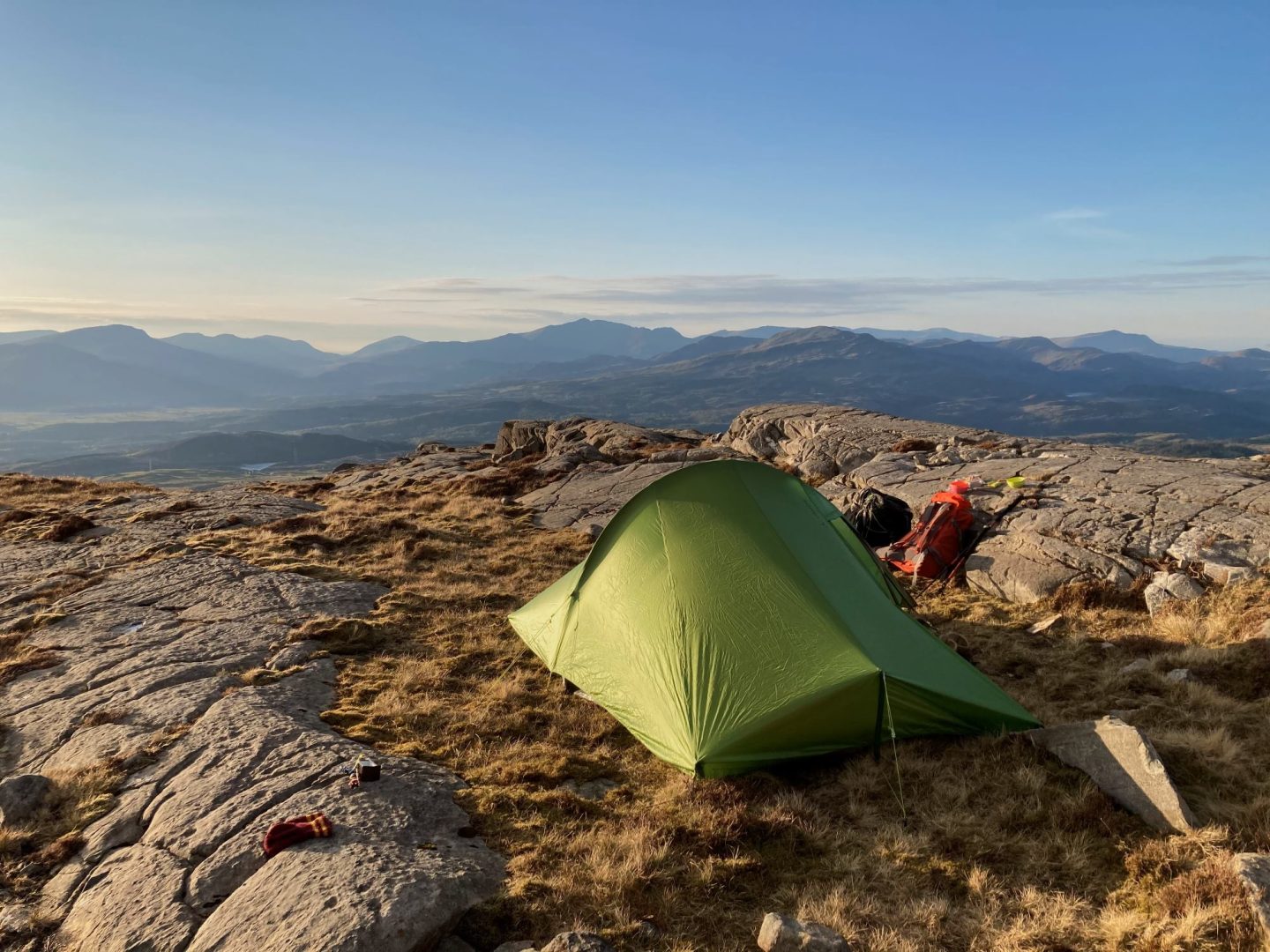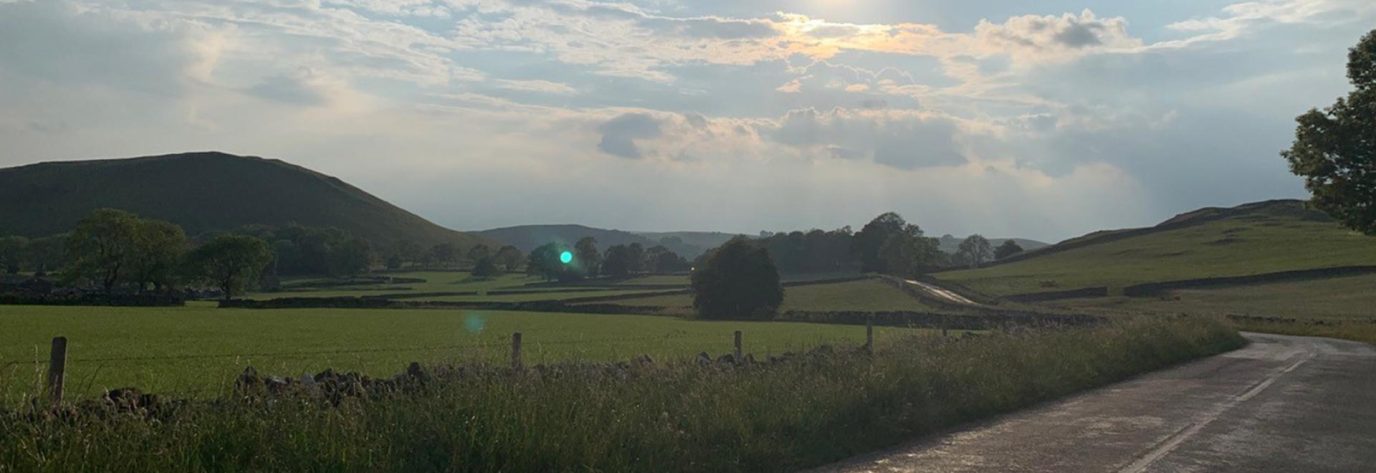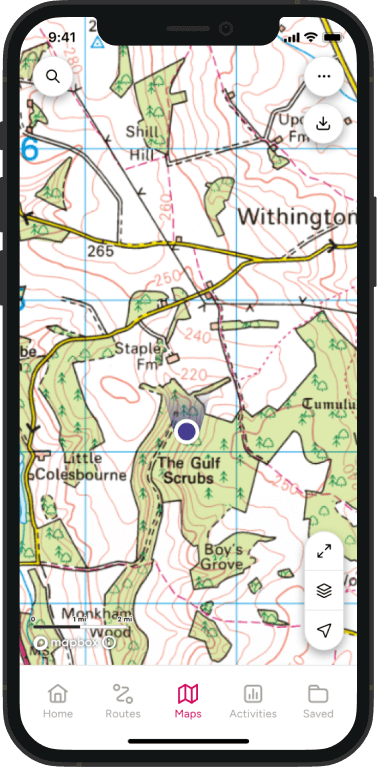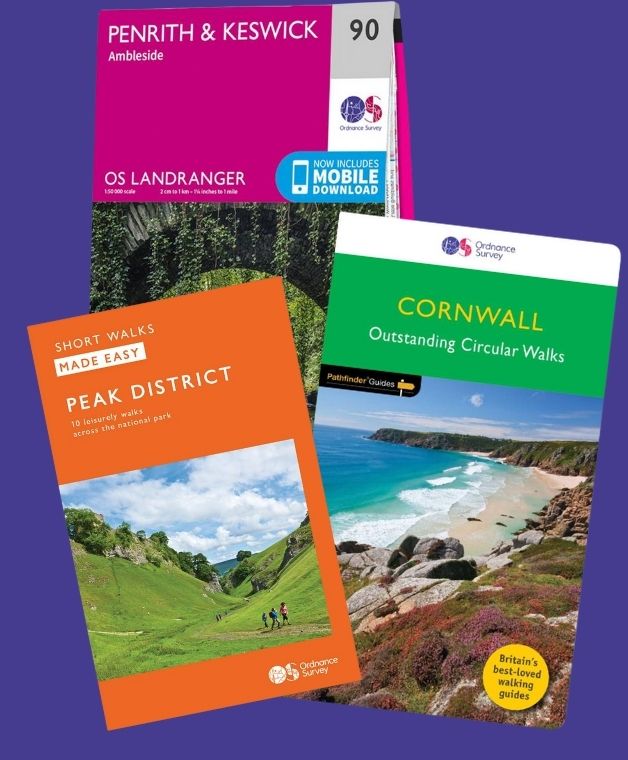Is Wild Camping Legal in England & Wales?
The really quick answer to this is NO, wild camping is NOT legal in England and Wales. In the National Parks of England and Wales you are free to roam away from footpaths, but you need to request the permission of the landowner before you set up camp, even just a bivvy or tarp. We have some great wild camping advice including the Get Outside Wild Camping Code that we should all abide by.
The rules around right to roam in National Parks of England and Wales can be found here – Countryside and Rights of Way Act 2000.
The Definition of Wild Camping
The definition of wild camping is pitching a tent / tarp / hammock or bivvy bagging over night in the countryside rather than in an organised campsite.
Can I get in trouble for wild camping in England or Wales?
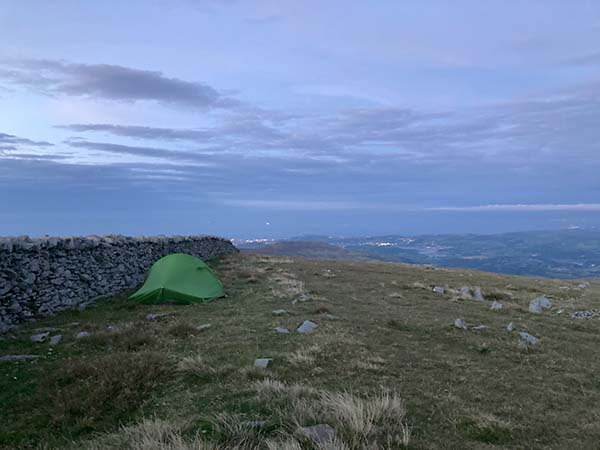
We often get asked ‘Can I wild camp in the Lake District’ or ‘Can I wild camp in Snowdonia’ by people who are worried they may get into trouble for doing so.
A fine or prison sentence can be issued for unauthorised encampments. However, in England and Wales www.gov.uk make it clear on their website and in detail in the legislation that this new police power to fine or arrest is predominently aimed at large groups who refuse to move on peacefully when asked.
If you follow the Countryside Code and the rules of wild camping that most participants adhere to, it’s unlikely anyone will ask you to move on. There are alternatives for a wild camping experience – read more about Worry Free Off Grid Camping.

Abiding by the ‘unwritten’ rules of wild camping
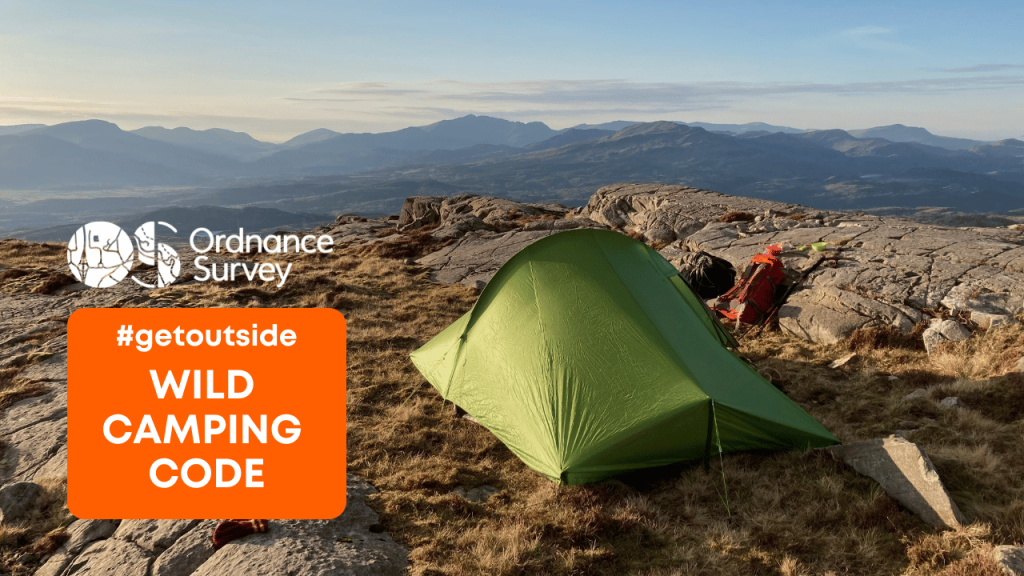
People do wild camp in England and Wales regularly. Whilst this doesn’t change the fact it is not permitted in any open countryside or open access land, we can offer some advice on wild camping to help you avoid getting into any trouble and ensure you respect the countryside.
Dartmoor Wild Camping – the exception
Dartmoor National Park has it’s own wild camping rules, you do NOT have to ask permission to back pack camp on Dartmoor. The supreme court recently upheld the legal right to wild camp on Dartmoor (See BBC Article May 2025) after a lengthy appeal by landowners. This has now secured the unique access for wild campers to Dartmoor National Park and will hopefully set a precedent for wild camping access in other National Parks, although we suspect the debate will continue long into the future.
Wild Camping Code
Follow this advice to ensure that your wild camping does not impact the environment and you leave no trace. We’d love to hear your tips for wild camping too tag us #ordnancesurvey to share your wild camping adventures.
Leave No Trace: Preserve the wild camping site exactly as found.
Stay Duration: Limit to one night; avoid altering landscape such as moving rocks or flattening plants.
Water Sources: Camp a minimum of 200 feet away to avoid disturbance to wildlife and contamination.
Waste Management: Bury toilet waste 200 feet from water or better still, take it home; don’t bury sanitary products.
Avoid Contamination: Refrain from using soaps or detergents; rinse with water only.
Noise Control: Wild camp in very small groups and keep noise levels low
Fires & Cooking: Use stoves; avoid any ground scorching. Ideally don’t have a fire especially in dry conditions.
Choose a discreet spot: Stay out of sight from main paths, buildings, roads, and livestock.
Blend in: Use tents and gear that match the landscape.
Timing: Set up your tent late in the evening and leave early in the morning, ideally at dusk and dawn.
Seek permission: Whenever possible, ask the landowner for permission before camping.
Respect requests: If a landowner asks you to move, do so respectfully and without fuss.
NB. Wild Camping in some parts of Dartmoor National Park is permitted but the rules have changed recently. Read our article Wild Camping on Dartmoor for specific advice on this.
If you want to experience Wild Camping legally then head up to Scotland where it’s permitted to wild camp. There’s lots of great information available on the Outdoor Access Scotland site.
Popular Locations for Wild camping in England and Wales
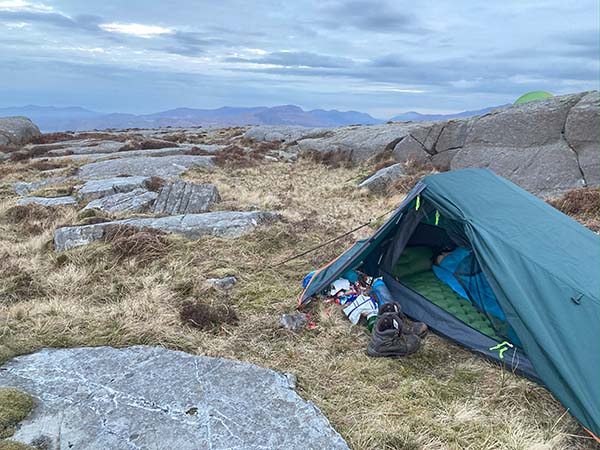
The National Parks of England and Wales are very popular locations for wild camping. The parks include open access land, mountains and moorland where you can find discreet wild camping spots away from busy tourist areas and enclosed farmland.
You’ll probably need to brush up on your hiking skills to access these quiet locations, take a look at our Hiking for Beginners Top Tips.
Read our article on finding the perfect wild camping spot here – How to Choose a Wild Camp Spot – 5 Top Tips
Learn more about National Parks in England & Wales where you could plan a Wild Camp
We spoke to OS Champion Ian Morris aka @morris_on_a_mountain about why he enjoys wild camping and any top tips he has.
I love wild camping because it’s a complete escape for the night – it makes you slow down and enjoy your surroundings, something that I rarely do if I’m on a hike in the day. It’s the excitement of it too, picking your route, finding your spot, seeing headtorches from other campers on other peaks realising you’re not really the only one out there, and obviously wondering if that sheep you can hear will chew through your tent! As someone who loves a chat when I’m out, I’ve always found it’s a great talking point too, a lot of other walkers you meet will be interested in your plans when they see your big backpack or your tent, it really reminds you that the outdoors has an awesome community!
Top tips from Ian for anyone new to wild camping
1. Roughly know your spot before you go so you know you’ll be able to pitch well, you don’t want to be stressing that you can’t find somewhere decent once you’re where you wanted to be.
2. Make sure you have everything you need to be comfortable for the whole time you’re out so you’re not caught short and get cold or run out of water.
3. Perhaps a slight contradiction to point 2, but pack light, there’s nothing worse than wearing yourself out with a heavy pack before you even make it halfway to your camp.
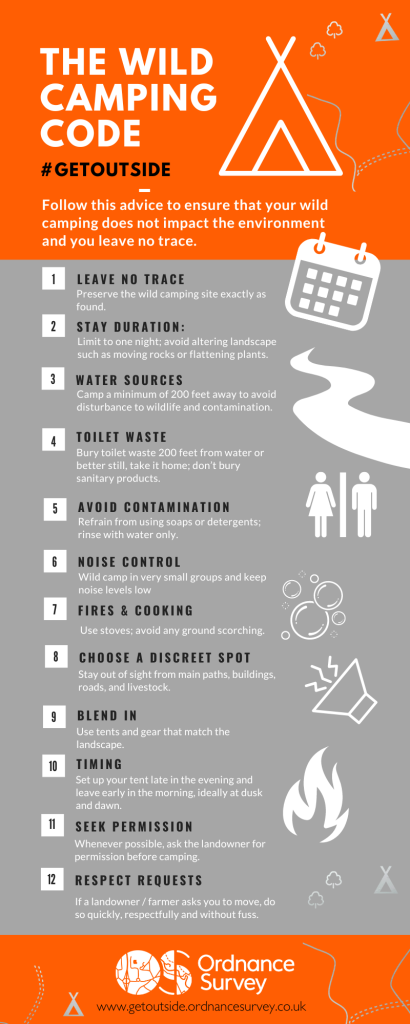

By Hilary Pullen
Meet Hilary, Editor of Get Outside – the Ordnance Survey Blog. Hilary is based in North Wales and loves hiking with her dogs in the mountains of Eryri and Bryniau Clwyd, you can find her on Instagram @nearlyuphill and read her guides to walking in North Wales on her blog. Drop her an email hilary.pullen@os.uk if you are interested in posting an article on Get Outside.
